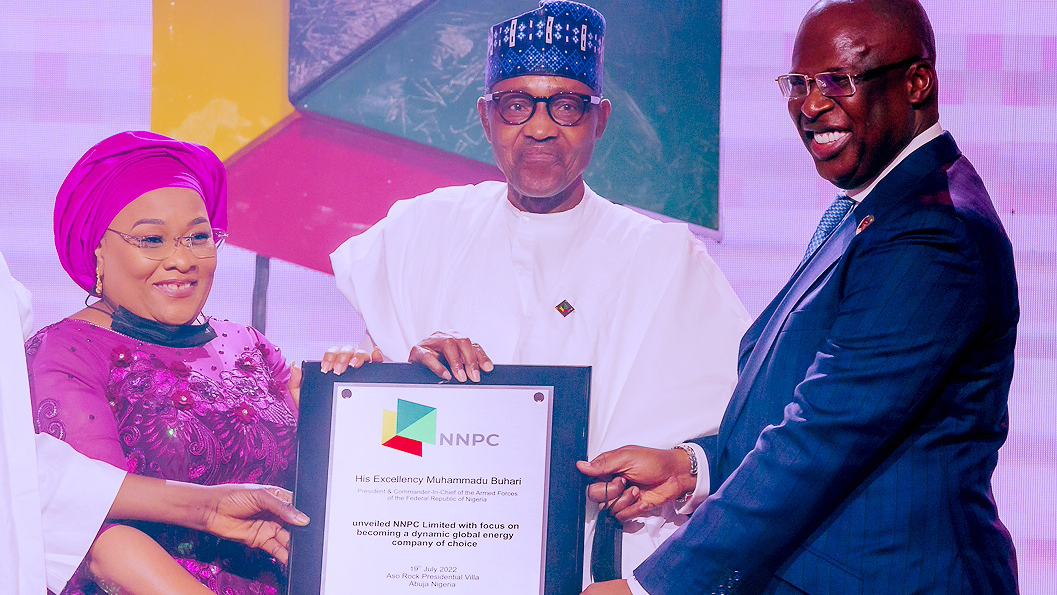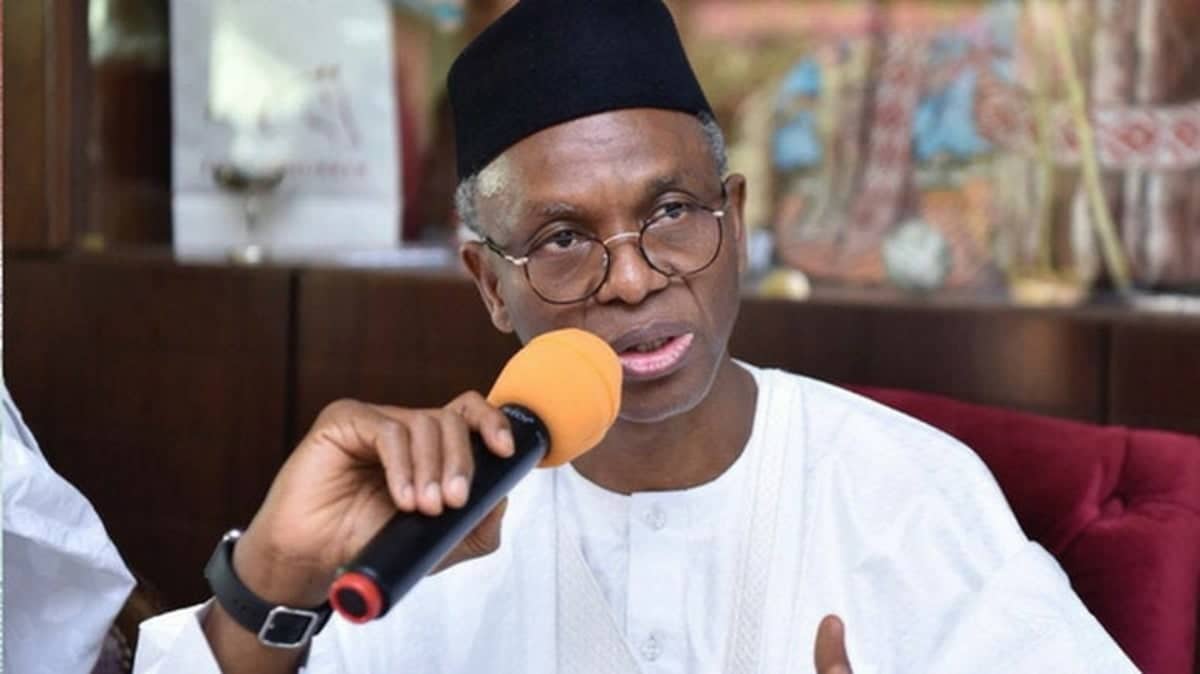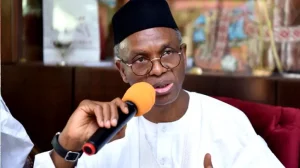SCORECARD : How the oil industry in Nigeria fared during Buhari’s 8 years as petroleum minister
As the Muhammadu Buhari eight-year reign ends on 29 May, Nigerians continue to reflect on the various challenges faced in the petroleum sector and how it affected their livelihood.
During the electioneering period in 2015, Mr Buhari and his party, the All Progressives Congress (APC), criticised the incumbent government of Goodluck Jonathan for failing to solve the country’s unending petroleum sector crises.
At the time, Mr Buhari made a series of promises to Nigerians, which include fixing the nation’s moribund refineries, passing the Petroleum Industry Bill (PIB) within one year, ending fuel importation, addressing the corruption in the subsidy regime, among others.
To achieve these objectives, six months after he was elected president in 2015, Mr Buhari appointed himself as Minister of Petroleum Resources, a move that many Nigerians said would engender transparency and accountability in the nation’s opaque oil sector.
Addressing some select reporters in New York at the time, Mr Buhari said, “I will remain Minister of Petroleum. I will appoint a minister of State for Petroleum”.
According to him, the step was taken as part of efforts to sanitise the country’s oil sector, which is said to be bedevilled by corruption, massive fraud and crude oil theft.
Although the PIB was passed under his administration, the sector faced different challenges, including fuel scarcity disruptions that caused suffering for many Nigerians while fuel subsidies continue to gulp huge resources.
Failed Promises
Fuel Subsidy Removal
Mr Buhari, before his victory in 2015, had consistently opposed the fuel subsidy regime under the Peoples Democratic Party (PDP). He also called for a reduction in the prices of petroleum products amidst efforts by the Goodluck Jonathan government to deregulate prices and end subsidy payments. He said there was no such thing as “subsidy” and dismissed it as a scam used by government officials to steal public funds.
Earlier in January 2012, Mr Jonathan’s administration had announced the removal of subsidies from petroleum products, thereby, adjusting the benchmark price of petrol from N65 to N141 per litre. The move triggered mass protests, known as #OccupyNigeria, as hundreds of thousands of Nigerians took to the streets.
Following the protest that lasted some days, the Jonathan administration was forced to reverse the fuel pump price to N97. Just before leaving office in 2015, it was further reduced to N87 per litre.

In his campaign promises, Mr Buhari assured Nigerians there would no longer be payments of subsidy.
In December 2015, Mr Buhari’s government began its move against subsidy by scrappingthe Petroleum Support Fund and declaring an end to the era of subsidy payment. The president and the Minister of State for Petroleum at the time, Ibe Kachikwu, assured Nigerians that even with the removal of the subsidy, the price of petrol would remain as low as N85 per litre.
Mr Kachikwu said the government could no longer pay the subsidy due to the fraud tainting the scheme, adding that the government would channel its resources instead into getting the refineries up, and saving the trillions of naira past governments squandered on fuel subsidy payments.
However, Mr Buhari took the nation by surprise a year later when his administration suddenly increased the price of petrol to N145 per litre in 2016, with subsidy payment still in place. The government persuaded Nigerians to accept the increase.
When fuel queues resurfaced during the Christmas and New Year celebration of 2018, the Nigerian National Petroleum Corporation (NNPC) said the landing cost of petrol was for months about N171.40 per litre, which is N26.40 above the official pump price of N145.
At the time, the Nigerian National Petroleum Corporation (NNPC) and the fuel marketers traded blame on who was responsible for the scarcity, and it resulted in rising retail prices that averaged about N200 per litre in most states, except Abuja and Lagos where filling stations in the metropolis sold for N145.
In December 2018, it became evident that the government was quietly continuing with the subsidy regime and earmarked N305 billion for petrol subsidy in the 2019 budget proposal. But the administration did not admit it was paying for subsidy and introduced a new tagline for subsidy, calling it “under-recovery”.
“We have allowed N305 billion equivalent to one billion US dollars for under-recovery by the NNPC on Premium Motor Spirit in 2019,” Mr Buhari stated in his budget presentation speech to a joint session of the National Assembly.
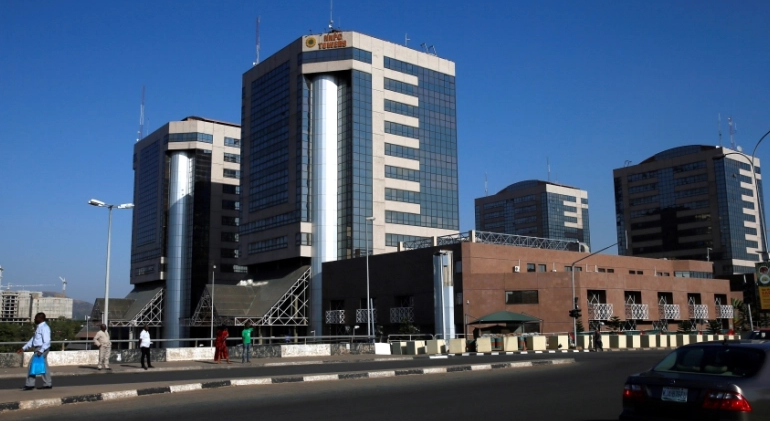
In 2019 and 2020, about three trillion Naira ($7 billion) was spent on subsidies.
By 2020, the Covid-19 pandemic set in, forcing down the price of oil to $20 a barrel. The government seized the moment yet again to announce another end to “under-recovery”.
“Nigeria cannot sustain its low pump prices of petrol amid shrinking revenue and poor foreign exchange earnings,” Mr Buhari said on Nigeria’s 60th independence anniversary in 2020.
He said that Nigeria suffered a significant drop in foreign exchange earnings and revenues due to a 40 per cent drop in oil prices and a steep drop in economic activities.
“In this regard, sustaining the level of petroleum prices is no longer possible,” he said.
He added that the government, since coming into office, had recognised the economic argument for adjusting the price of petroleum. “But the social argument about the knock-on effect of any adjustment weighed heavily with the government. In these circumstances, a responsible government must face realities and take tough decisions,” he said.
In the circumstances, Mr Buhari said petroleum prices in Nigeria were to be adjusted, and fuel prices rose to N161 per litre. To further justify the reason for the increase in fuel price, he said, “It makes no sense for fuel to be cheaper in Nigeria than Saudi Arabia.”
“Chad, which is an oil-producing country, charges N362 per litre; Niger, also an oil-producing country, sells 1 litre at N346. In Ghana, another oil-producing country, the petroleum pump price is N326 per litre, Egypt charges N211 per litre and Saudi Arabia charges N168 per litre.”
Again in November 2021, the federal government announced its plan to remove the fuel subsidy and replace it with a monthly N5,000 transport grant for poor Nigerians.
But the plan was yet again reversed after the Nigeria Labour Congress (NLC) and Trade Union Congress (TUC) threatened to embark on mass protests.
The Minister of Finance, Zainab Ahmed, in January last year said the government had realised the timing of its planned removal of petrol subsidy is “problematic”, and will worsen the suffering of Nigerians. She said the government will retain fuel subsidy indefinitely and will work on amending the 2022 budget to provide funds for that purpose. The government added that it would spend N3 trillion on subsidies in 2022.
In the first quarter of 2023, Mrs Ahmed said that it will be more appropriate for the government to begin the implementation of its fuel subsidy policy in the second quarter of the year. She noted that the country needs to exit the fuel subsidy regime because it is a very significant contributory factor to revenue loss.
As concerns were raised over the sustainability of the subsidy regime, the Nigerian National Petroleum Company Limited (NNPCL) also announced that the country was spending over N400 billion monthly on petroleum subsidies.
The government subsequently said that it will phase out the subsidy regime by the end of the first half of the year.
But in April, the National Economic Council (NEC) suspended the planned removal of subsidy on petroleum products by the end of President Muhammadu Buhari’s administration. Mrs Ahmed said that the council deliberated on the matter and resolved that the subsidy cannot be removed for now.
Non-functioning Refineries
Nigeria owns four refineries with two located in Port Harcourt and one each in Warri and Kaduna. But for many years, the refineries have been moribund despite Turn-Around-Maintenance efforts.
In March 2015, Mr Buhari in his response to the fuel scarcity in the country lambasted past governments and Mr Jonathan for failing to fix refineries and leaving Nigerians at the mercy of fuel imports.
He reminded Nigerians that two of the four refineries in the country were built under his watch as petroleum minister in the 1970s.
“The countless man hours that will be spent at petrol stations today, will reduce our productivity as a nation. This should not be so,” Mr Buhari said.

“In my time as NNPC chairman and Petroleum Minister in the late 70s, 2 of our 4 refineries were built, and domestic consumption was catered for. But over the last several years our refineries have declined, and we are at the mercy of imports,” he added.
On assuming power in 2015, Mr Buhari pledged to revive Nigeria’s minimally performing refineries to optimum capacity and boost foreign reserves by ending the importation of refined fuel.
In November 2018, the administration fixed December 2019 as the deadline for three refineries to attain full production capacity to end petroleum importation in the country. Later in the month, the deadline was shifted to 2020.
“Plans by the Nigerian government to fix Nigeria’s moribund refineries and make them work in utmost capacity will not materialise until 2020.
“Hopefully, we will be having a board meeting next week where we will take some soft landing decisions for the commercial investment in the refineries. In all, we are expecting about 1.1 million barrels refining capacity by 2020,” Ibe Kachikwu, Nigeria’s oil minister said at the time.
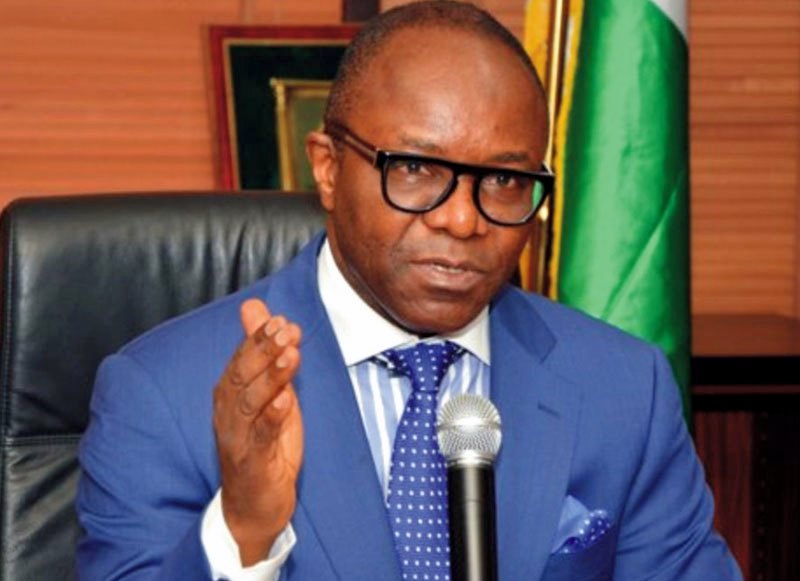
Even though the 2020 deadline was not realised, the government spent N10.23 billion in June 2020 on three refineries that processed zero crude.
Again in January 2023, Mr Sylva assured that part of the refinery would be completed by the first quarter of the year, but the government has again failed to meet its target.
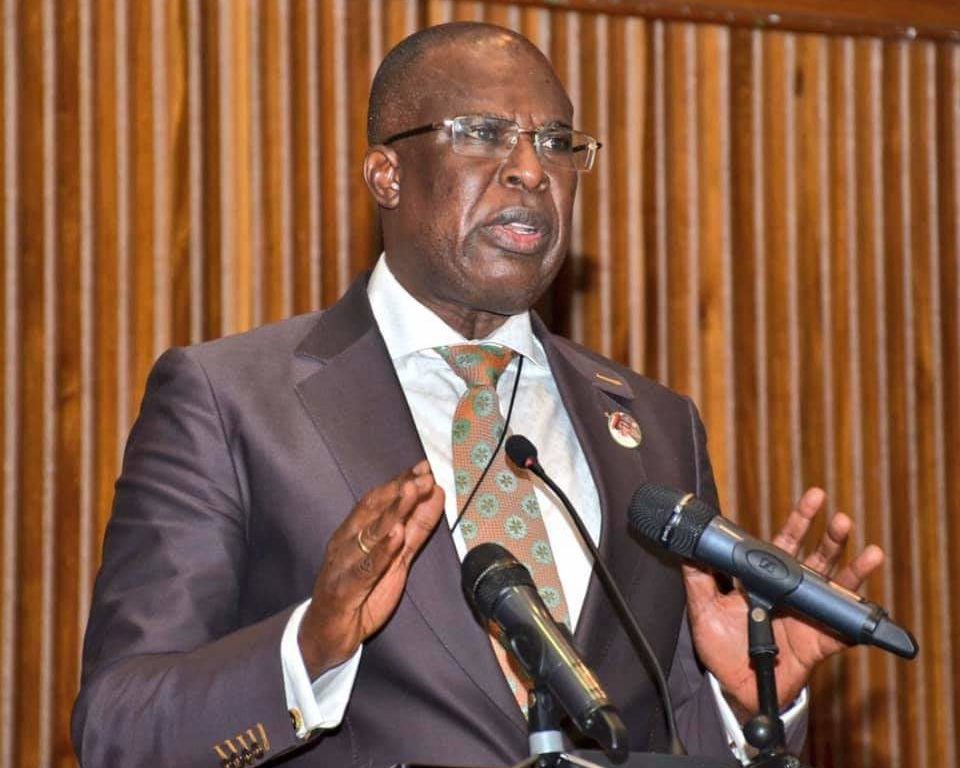
Despite spending billions of naira annually for the servicing and maintenance of the refineries, none of the refineries is functional yet and Nigeria still imports refined crude.
The nation now places its dream of ending fuel import on the operations of the private Dangote Refinery, which was commissioned on Monday in Lagos.
Oil theft/Pipeline Vandalism
In recent years, Nigeria has recorded a surge in pipeline vandalism and crude oil theft incidents in its oil-producing region, a development that worsened the nation’s revenue challenge.
Under the administration of Mr Buhari, 250,000 barrels of crude oil are reportedly being stolen in the country daily.
In 2018, about 53.28 million barrels of crude vanished from Nigeria’s resources.
Nigeria’s oil auditing agency, NEITI, indicated that in 2019, the West African country lost 42.25 million barrels of crude oil to oil theft, valued at $2.77 billion.
In 2020, crude losses from theft and sabotage amounted to $1.63 billion at the average price of crude $41.65 per barrel. This was 6.10 per cent of the total fiscalised production for the year.
In April 2022, the Group Managing Director of the NNPC Limited, Mele Kyari, disclosed that Nigeria lost $4 billion to oil theft at the rate of 200,000 barrels per day in 2021.
He added that the country already lost $1.5 billion so far in 2022 because pipeline vandalism had escalated. Mr Kyari said the country was losing 95 per cent of oil production to thieves at Bonny Terminal, Rivers State.
Last September, the NNPC said Nigeria lost 470,000 barrels of crude oil monthly amounting to $700 million to oil theft.
The federal government in its draft fiscal strategy paper for 2023 through 2025 said that oil revenue underperformed due to significant production shortfalls such as shut-ins resulting from pipeline vandalism and crude oil theft as well as high petrol subsidy cost due to higher landing costs of imported products.
In a bid to curb crude theft, the Nigerian government launched an application in August last year to monitor incidence. The NNPC also awarded a multi-billion naira pipeline surveillance procurement to a former leader of the Movement for the Emancipation of Niger Delta, Thomas Ekpemukpopo, aka Tompolo.

Despite the controversy that trailed the contract, the company reportedly discovered several illegal connections into major pipelines. In October 2022, Tompolo said he had discovered at least 58 illegal points in Delta and Bayelsa states where crude oil was being stolen. In less than one week, after its discovery, a private oil pipeline surveillance team, Tantita Security Services, led by Tompolo, announced that it uncovered another illegal pipeline attached to the Trans Forcados Export Trunk line. The vessel was subsequently destroyed.
Last October, the NNPC also announced it had uncovered an illegal oil connection from Forcados Terminal that operated for nine years. Mr Kyari, who disclosed this at the Senate’s joint committees on Gas and Petroleum (Upstream and Downstream), said that 395 illegal refineries had been deactivated, 274 reservoirs destroyed, 1,561 metal tanks destroyed and 49 trucks seized so far.
“Oil theft in the country has been going on for over 22 years but the dimension and rate it assumed in recent times is unprecedented,” Mr Kyari said.
In February, the National Security Adviser (NSA), Babagana Monguno, said the federal government had prevented over three million barrels of crude oil from being stolen between August 2018 and January 2023.
Mr Monguno said the attacks on oil-producing facilities led to several shutdowns in some international oil companies in the country.
This, according to him, resulted in the loss of revenue and by implication negated the capacity of the government to generate the required resources to fulfil its statutory responsibilities to the citizenry.
“Currently, crude oil theft is arguably the biggest threat to Nigeria’s economy. Its socioeconomic impact includes environmental degradation, health hazards and disruption in economic activities of the host communities amongst other concerns,” Mr Monguno said.
Petroleum Industry Bill (PIB)
On 16 August 2021, Mr Buhari signed the Petroleum Industry Bill 2021 (PIB) into law.
The bill had remained at the National Assembly for more than a decade, with successive sessions of the Senate and House of Representatives failing to approve its provisions of sweeping reforms for the oil and gas sector.
Mr Buhari said the signing of the PIB marks the end of decades of uncertainty and under-investment in the petroleum industry.
In his remarks at a ceremony on the passage of the Petroleum Industry Act (PIA), Mr Buhari said Nigeria lost an estimated $50 billion worth of investments in 10 years, created by the uncertainty of non-passage of the PIB, and lack of progress and stagnation in the petroleum industry.
Under the new Act, the NNPC transited into a public liability company.
In July 2022, Mr Buhari unveiled the new Nigerian National Petroleum Company Limited, a landmark event that officially changed the oil firm from a wholly state-run entity to a commercial oil company, limited by shares.
Following its transition as a limited liability company, NNPC, on 4 October, announced it had posted a profit after tax in the sum of N674 billion for 2021.
Through the passage of the PIA, the government was able to scrap the existing agencies and replace them with new regulators.
In October 2021, the government scrapped three oil sector agencies as required under the petroleum law and replaced them with new regulators.
The Department of Petroleum Resources (DPR), the Petroleum Products Pricing Regulatory Agency (PPPRA), and the Petroleum Equalisation Fund (PEF) were scrapped and replaced by the Nigerian Midstream and Downstream Petroleum Regulatory Authority, (NMDPRA), and the Nigerian Upstream Petroleum Regulatory Commission, (NUPRC).
In April, Mr Buhari said the actualisation of the PIA 2021 is the second biggest achievement in the country’s energy sector.
“The Petroleum Industry Act (PIA) remains our second biggest achievement in the energy sector. For decades, we were told that because of various vested interests, it would be nearly impossible to pass the bill but we made it happen,” Mr Buhari said while declaring the Nigeria International Energy Summit, (NIES) 2023, open at the presidential banquet hall in Abuja.
AKK Gas Pipeline Project
The Buhari administration started the Ajaokuta-Kaduna-Kano (AKK) Gas Pipeline Project which it said has reached almost 70 per cent completion.
NNPCL said the AKK gas pipeline and stations project is a flagship project that will deepen the integration of the northern region of the country with the Niger Delta and other parts of the country.
The pipeline can transport two billion standard cubic feet of natural gas per day to three proposed independent power plants in Abuja, Kaduna, Kano, and other gas-based industries as well as other identified and proposed commercial off-takers along the entire pipeline route.
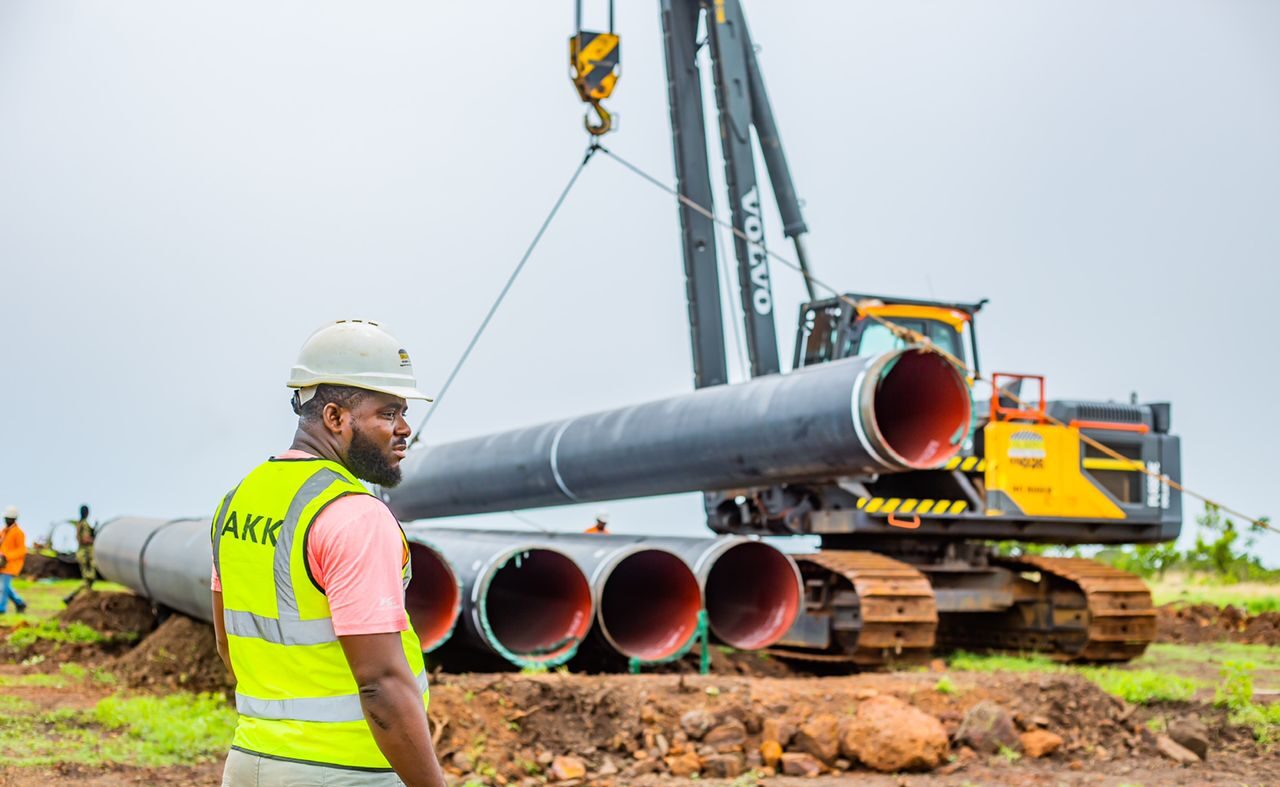
Since the flag-off of the project by President Buhari in June 2020, the NNPCL said it has recorded significant feats and the project is well on course to deliver on schedule.
In April, Mr Kyari, during an inspection tour of one of the project sites located in Ahoko, Kogi State, said the company had so far released $1.1 billion to finance the project.
Based on the inspection tour, it was revealed that the overall engineering design for the linear section of the two segments of the project stands at 93.48 per cent, while the overall procurement for the linear section for the two segments is at 88 per cent.
Similarly, 94 per cent of the total line pipes have been manufactured and 90 per cent already in-country.
“Construction activities in both segments are ongoing. We have completed 400km of the linear section/mainline welding, representing 68 per cent of ROW from Ajaokuta in Kogi state to Kano,” the NNPCL said.
Fuel scarcity
Fuel queues continued under the Buhari administration.
The first major fuel scarcity under the administration was between September and December 2015. The country witnessed long queues in filling stations while petrol was sold for almost double its usual price, leading to an increase in transportation fares.
Another scarcity was in April/May 2016, which led to the fuel price increase by the federal government, from N87 to N145. In his response to the development at the time, then governor of Ekiti State, Ayodele Fayose described the move as “Buhari’s first-year anniversary gift to Nigerians.”

Again in December 2017, fuel scarcity hit Nigerian cities. At various times during the scarcity, top government officials adduced different reasons for the crisis which caused a bleak Christmas celebration across the country.
A month after the fuel supply crisis resurfaced, the Chief of Staff to the President, at the time, Abba Kyari, inaugurated a committee on behalf of the President on 2 January.
Headed by the Minister of State for Petroleum Resources, Ibe Kachikwu, the committee was mandated to review the immediate and remote causes of the scarcity and proffer lasting solutions. The committee however failed to put an end to the crisis.
In 2021, fuel queues returned to Nigerian cities amid reports of a likely price increase by marketers, but the NNPC denied that the government was not planning a hike. The crisis lingered for months despite the federal government saying it had sufficient stock of petroleum products for distribution.
It got worse in February 2022 after the importation of substandard fuel from Europe. The government said methanol, a substance that is usually present in petrol, found in the product exceeded Nigeria’s specification. Mr Buhari directed that producers and providers of the off-spec petrol imported into the country be held accountable but that was hardly pursued to a conclusive end.
Also Read:
The scarcity continued throughout 2022 despite the government’s repeated claims it had enough petroleum products in stock.
Earlier this year, Nigerians yet again faced the challenge of fuel scarcity for the umpteenth time.
Despite promises, Mr Buhari failed to end fuel scarcity across the country during his tenure.
